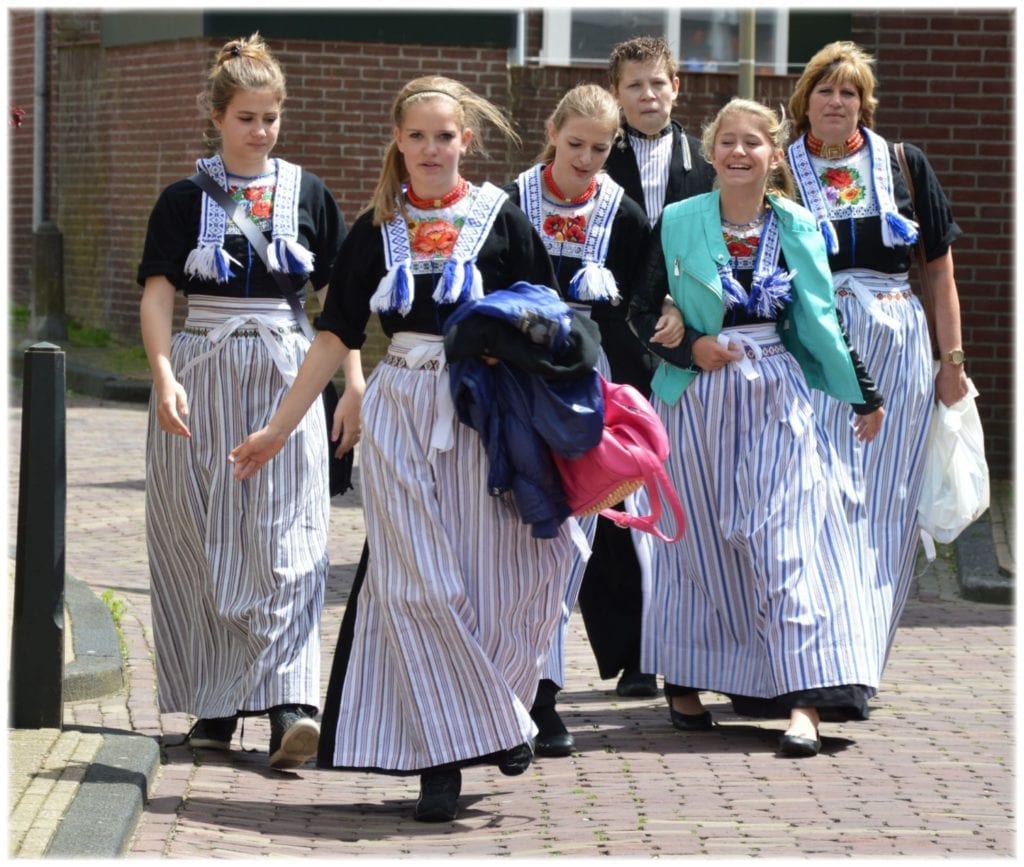Table of Contents
- What Makes Dutch Language So Expressive?
- Historical Roots of Dutch Cuss Words
- Are There Common Themes in Dutch Cuss Words?
- The Role of Religion in Dutch Cuss Words
- How Do Dutch Cuss Words Differ from English Ones?
- Everyday Use of Dutch Cuss Words
- Understanding the Impact of Dutch Cuss Words
- Learning About Dutch Cuss Words with Care
When we think about a country's spoken forms, it is almost certain that we consider the many ways people express themselves, and that includes the more forceful or less polite parts of their vocabulary. Every tongue, you know, has its own particular collection of strong expressions, words that carry a great deal of emotional weight, and Dutch is absolutely no exception to this general rule. These sorts of terms offer a really interesting window into the spirit of a place, showing us how people react to frustration, surprise, or even just a bit of lighthearted teasing.
The way a language develops, including its less formal parts, often reflects a nation's journey through time, as a matter of fact. Just like the long history of the Dutch people, from their significant struggle for independence, a period well-known in the records of European nations, to their role in global trade, their spoken forms have taken on a character that is truly their own. It’s a language that has seen a lot, from the shipping of goods across oceans to quiet moments in bustling cities where limiting private vehicle use has become a notable trend since the 1970s, which is quite interesting.
So, exploring these particular linguistic elements gives us a better sense of how the Dutch communicate on a deeper, more personal level. It's not just about knowing what words mean in a dictionary; it’s about grasping the feeling behind them, the cultural nuances that shape how they are used, and the situations where they might appear. This kind of exploration, in a way, helps us get closer to the heart of what makes Dutch communication so distinctive, moving beyond just simple translations to a more complete grasp of how people genuinely interact.
What Makes Dutch Language So Expressive?
The Dutch language, with its rather unique sounds and direct manner of speaking, has a certain kind of vigor that can feel quite impactful to someone who is just getting to know it. This directness, you know, is something that has been observed in various aspects of Dutch life, from their historical trade dominance, where they moved the largest amounts of grain and spices, to their generally straightforward way of conducting affairs. It is this very characteristic that often lends itself to the creation and frequent application of strong verbal expressions, words that really pack a punch when someone needs to convey a powerful feeling or reaction.
Many people might wonder, is that directness a product of their history, perhaps the result of a culture that values clear and unambiguous communication, especially in matters of commerce and self-governance? For instance, during the Dutch War for Independence, or as it's often called in historical accounts, there was a clear need for unambiguous directives and responses, which might have reinforced a preference for plain speech. This kind of straightforward approach can, in some respects, lead to a linguistic environment where terms of strong sentiment are not only understood but also commonly employed to convey a wide spectrum of emotions, from pure frustration to a feeling of deep disappointment, or even just a moment of lighthearted surprise.
When considering the various elements that contribute to the expressiveness of the language, one can't help but notice how certain phrases, which might seem a little harsh at first glance, are actually used with a surprising degree of casualness among friends or family members. This particular aspect of the language, you see, speaks to a cultural comfort with a kind of bluntness that might be perceived differently in other linguistic settings. It’s about understanding the context, the tone of voice, and the relationship between the people speaking, which can transform a seemingly rough word into something much more benign, or even, basically, quite affectionate in certain situations, which is rather interesting.
Historical Roots of Dutch Cuss Words
To truly grasp the origin of many Dutch cuss words, it is helpful to look back at the country’s past, which is, honestly, quite rich with events that shaped its identity and its language. The Dutch people, through centuries of maritime trade and maintaining a position of considerable influence, certainly developed a practical and resilient character. This particular trait, in a way, often finds its way into the language, including the more forceful words people use when things don't quite go as planned or when they feel a strong sense of injustice. The language, you know, reflects the experiences of its speakers, and a history of overcoming challenges can certainly lead to a vocabulary that includes terms for expressing intense feelings.
Consider, for instance, the period of the Dutch War for Independence, a truly pivotal time in their story. Such a prolonged struggle for freedom against powerful adversaries would naturally foster a culture of resilience and, arguably, a directness in communication that leaves little room for ambiguity. This historical backdrop, basically, could have contributed to the evolution of strong expressions that serve as outlets for intense emotions, whether it be anger, defiance, or simply a deep-seated frustration. The words themselves, you know, might have roots in older forms of the language, or they might have developed as responses to the very real difficulties and triumphs faced by the population over many generations, which is quite fascinating.
Furthermore, the Dutch have, over time, interacted with many different cultures through their extensive trading networks. This constant exchange of goods and ideas, as a matter of fact, meant that their language was always in a state of subtle change, absorbing influences and adapting new ways of speaking. While the core of their strong expressions likely remained rooted in their own experiences, it's possible that some of the nuances or even the sheer variety of Dutch cuss words might have been subtly shaped by these interactions. It’s a living language, after all, and its more forceful terms are just as much a part of that ongoing development as any other part of its vast collection of words, which is pretty much how languages grow.
Are There Common Themes in Dutch Cuss Words?
When one starts to look at the kinds of strong words used in Dutch, certain patterns and recurring ideas tend to emerge, which is quite typical for any language, really. It’s interesting to see how different cultures choose their most impactful terms, and the Dutch, it seems, have a particular leaning towards certain categories of concepts when they need to express something with a lot of force. These categories, basically, often reflect things that are considered serious or even taboo within the cultural framework, giving the words their inherent power and ability to shock or emphasize a point, which is usually the goal when using such language.
One very prominent theme you'll notice in many Dutch cuss words, for example, often revolves around certain kinds of ailments or afflictions. This might seem a little unusual to speakers of other languages where different themes dominate, but in Dutch, it’s a fairly common way to express strong displeasure or frustration. The use of such terms, in a way, taps into a collective cultural sensitivity around health and well-being, making these words particularly potent when uttered in moments of irritation or surprise. It’s almost as if the very idea of discomfort or illness is harnessed to convey a powerful emotional state, which is kind of unique.
Another recurring idea that shows up in the collection of Dutch cuss words, very often, has to do with spiritual or sacred matters. This particular aspect, you know, points to a historical and cultural context where religious belief played a very central part in daily existence. Even in a more secular time, the echoes of this past continue to give these words a certain kind of intensity and impact. When someone uses a term related to the divine or to spiritual concepts in a moment of anger or surprise, it typically carries a weight that is deeply understood by other speakers, basically because of the long-standing cultural connections to these ideas, which is quite fascinating.
The Role of Religion in Dutch Cuss Words
The influence of religious thought on the formation and continued use of Dutch cuss words is, arguably, quite significant. For a long stretch of history, spiritual beliefs were deeply woven into the fabric of daily life for many people in the Netherlands, shaping their values, their social structures, and, basically, their very way of speaking. This deep connection meant that words and concepts related to the divine held a considerable amount of reverence and, consequently, a strong potential for impact when used in a less respectful or even blasphemous way. It’s a linguistic phenomenon that is tied very closely to the country’s historical spiritual landscape, you know.
Even today, when many parts of society have become less overtly religious, the power of these particular Dutch cuss words remains largely intact. This is because the cultural memory of their original sacred meaning persists, giving them a certain kind of punch that other words simply do not possess. When someone expresses frustration or anger using a term that, literally, invokes a holy concept, it resonates with a deep-seated cultural understanding of what is considered sacred and, therefore, what can be used to create a strong emotional reaction. It’s a subtle but very real connection to the past that continues to shape contemporary speech patterns, which is pretty interesting.
It's worth noting that the way these religiously-tinged Dutch cuss words are employed can also vary quite a bit depending on the specific situation and the people involved. Sometimes, they are used with genuine anger, but other times, they might be uttered with a kind of casualness that belies their powerful origins, almost like a verbal tic. This versatility, in a way, shows how language adapts and how even the most impactful terms can become part of everyday conversation, though their underlying strength is always there, waiting to be fully felt. It’s a testament to the enduring power of historical influences on spoken communication, which is basically how language works.
How Do Dutch Cuss Words Differ from English Ones?
When you start to compare the forceful expressions in Dutch with those found in English, you quickly notice some rather interesting distinctions in how they are constructed and what themes they draw upon. While both languages certainly have their own ways of expressing anger, frustration, or surprise, the specific words and the cultural weight they carry can be quite different. For instance, where English might lean heavily on certain anatomical references or terms related to bodily functions, Dutch, as we've discussed, often ventures into areas like ailments or religious concepts for its most potent utterances, which is a key difference, you know.
This divergence in preferred themes means that what might be considered deeply offensive or shocking in one language might simply be a mild expression of annoyance in the other, or vice versa. It’s not just a matter of direct translation; it’s about understanding the underlying cultural sensitivities and what kinds of words are perceived as truly breaking a social barrier. For example, a phrase that might be considered very harsh in Dutch could, in some respects, be quite tame when translated directly into English, simply because the cultural context that gives it its power is not present in the same way, which is something to think about.
Furthermore, the frequency and social acceptance of certain strong terms can also differ significantly between the two languages. In some situations, what might be deemed incredibly rude or inappropriate in an English-speaking setting could be heard quite commonly in a casual Dutch conversation among close acquaintances. This isn't to say that Dutch speakers are inherently less polite, but rather that their linguistic customs around these kinds of words are simply different, reflecting a unique set of social norms and historical influences. It’s a subtle but very real aspect of cross-cultural communication, basically, something to keep in mind.
Everyday Use of Dutch Cuss Words
In daily life, the application of Dutch cuss words can be surprisingly varied, extending far beyond just moments of intense anger or frustration. While these strong expressions certainly serve that purpose, they are also, quite often, woven into casual conversations, sometimes even as a way of expressing camaraderie or lighthearted teasing among friends. It’s a testament to the versatility of language, how even words with powerful origins can find a place in more informal and friendly exchanges, which is kind of interesting to observe, you know.
You might hear these terms used when someone drops something, or perhaps when they are playfully complaining about a minor inconvenience, or even as a way to emphasize a point in a story. The tone of voice, the facial expressions, and the overall context become absolutely crucial in understanding the true intent behind the words. A word that could be quite offensive in one setting might, basically, be a sign of close friendship in another, depending entirely on how it is delivered and received. It’s a dance of nuances that requires a certain familiarity with the culture to truly appreciate, which is pretty much true for any language.
This everyday incorporation means that learning about Dutch cuss words isn't just about memorizing a list of terms; it’s about understanding the social dynamics that govern their use. It’s about recognizing when a word is meant to be truly offensive versus when it’s simply a colorful addition to a casual chat. This kind of cultural literacy, you know, goes a long way in helping someone connect with Dutch speakers on a more authentic level, moving beyond simple dictionary definitions to a more profound grasp of how people genuinely communicate their feelings and thoughts, which is really quite important.
Understanding the Impact of Dutch Cuss Words
Grasping the full impact of Dutch cuss words requires more than just knowing their literal meanings; it means understanding the emotional and social weight they carry within the culture. These are not just sounds or symbols; they are tools of expression that can convey deep levels of feeling, from profound annoyance to a sense of playful exasperation. The strength of these words, in a way, comes from their ability to tap into shared cultural understandings of what is considered inappropriate, shocking, or simply very direct, which is often how they gain their power, you know.
The effect a particular strong word has on a listener can vary widely, basically depending on who is speaking, who is listening, and the specific circumstances of the conversation. What might be completely acceptable in a casual setting among peers could be deeply offensive or unprofessional in a more formal environment. This sensitivity to context is, arguably, a universal aspect of language, but it is particularly important when dealing with terms that carry such a strong emotional charge. It's about recognizing the invisible lines that govern polite and impolite speech, which are quite distinct in every language, really.
For someone who is not a native speaker, the nuances of these words can be particularly challenging to grasp. It’s easy to misunderstand the intent behind a strong expression, or to use one inappropriately, simply because the subtle cues that signal its true meaning are missed. This is why, you know, a deeper exploration into the cultural background and the common ways these words are used is so valuable. It helps bridge the gap between literal translation and genuine comprehension, allowing for a more respectful and accurate interpretation of spoken Dutch, which is something to keep in mind.
Learning About Dutch Cuss Words with Care
Approaching the topic of Dutch cuss words with a sense of care and respect is, basically, very important for anyone looking to truly understand the language and its cultural intricacies. It’s not about learning to use these words yourself right away, but rather about gaining an appreciation for their place within the broader linguistic landscape. This kind of careful study allows one to recognize them when heard, to understand their potential impact, and to navigate conversations with a greater sense of awareness, which is pretty much essential for effective communication, you know.
One way to learn with care is to observe how native speakers use these terms in various situations, paying close attention to the context, the tone, and the reactions of others. This observational approach, in a way, provides a much richer understanding than simply looking up definitions in a book. It’s about seeing the words in action, understanding the unspoken rules that govern their application, and recognizing the subtle cues that indicate their true meaning in any given moment. This kind of practical insight is, arguably, invaluable for anyone hoping to truly grasp the nuances of Dutch communication, which is something to think about.
Ultimately, a respectful engagement with the more colorful parts of Dutch vocabulary contributes to a more complete and nuanced appreciation of the language as a whole. It’s about acknowledging that every tongue, including Dutch, has its full spectrum of expression, from the most formal to the most informal, from the gentlest to the most forceful. This comprehensive view, basically, enriches one's linguistic journey and fosters a deeper connection with the culture and the people who speak it, which is, honestly, a very rewarding experience.


